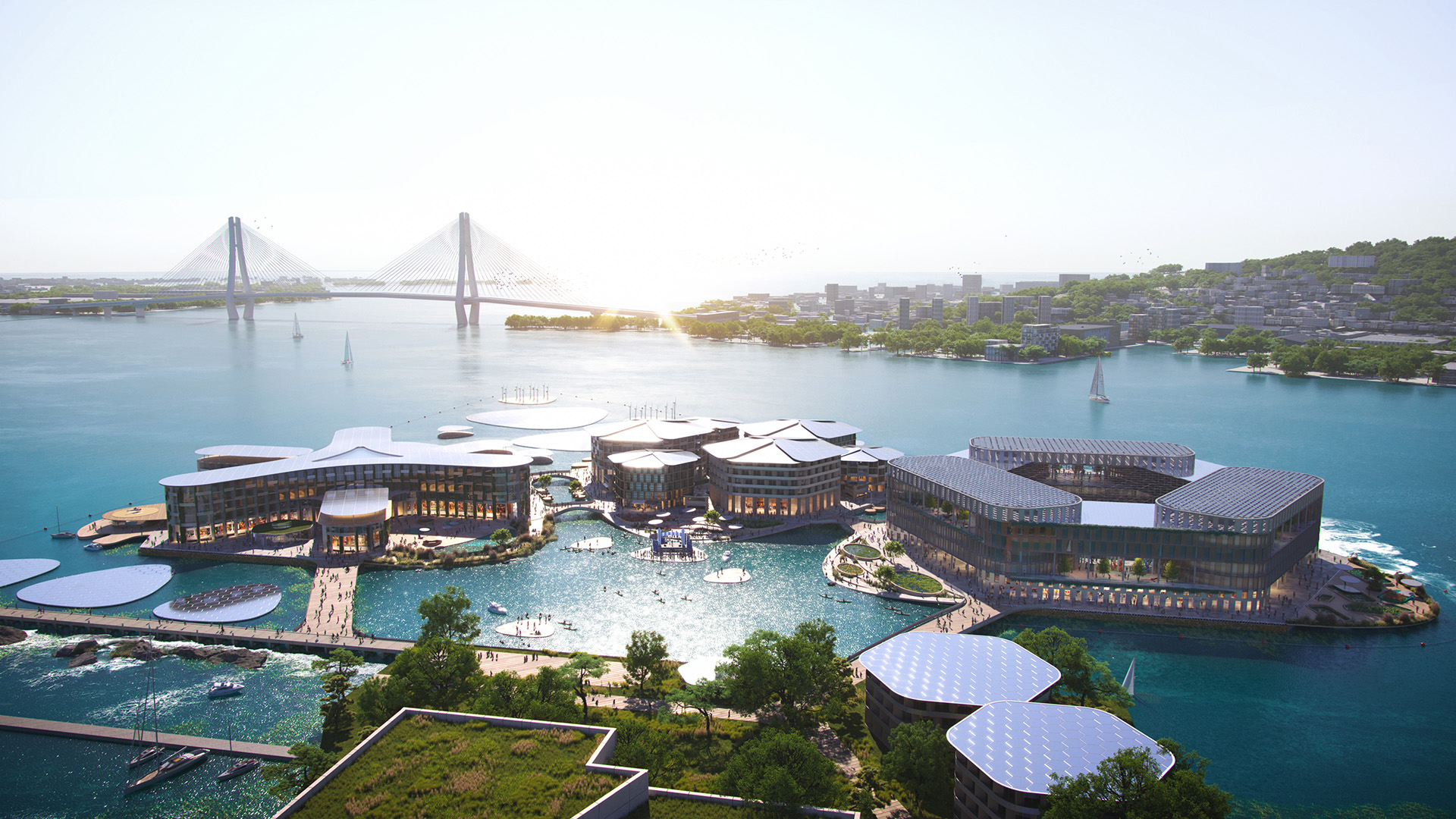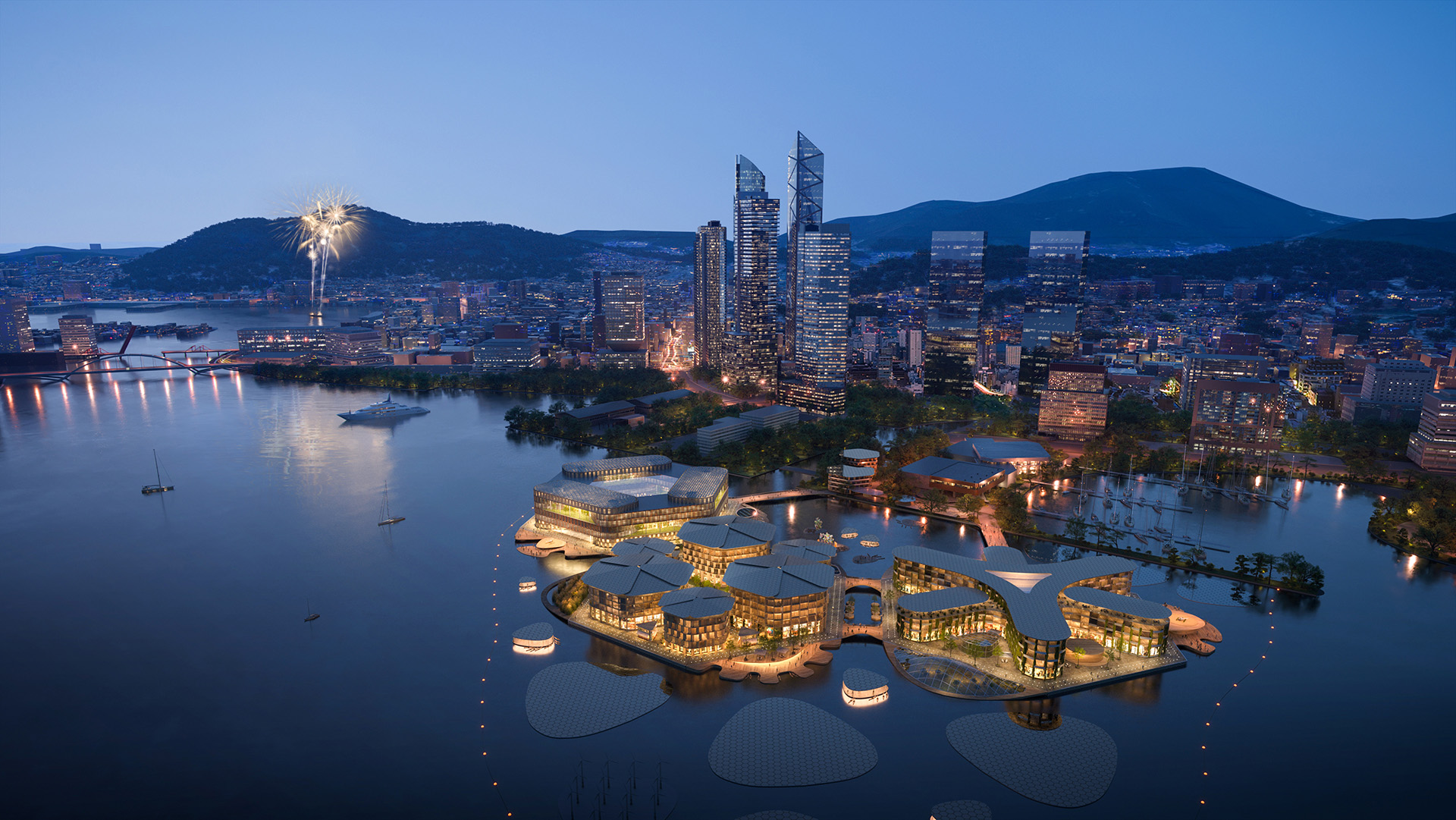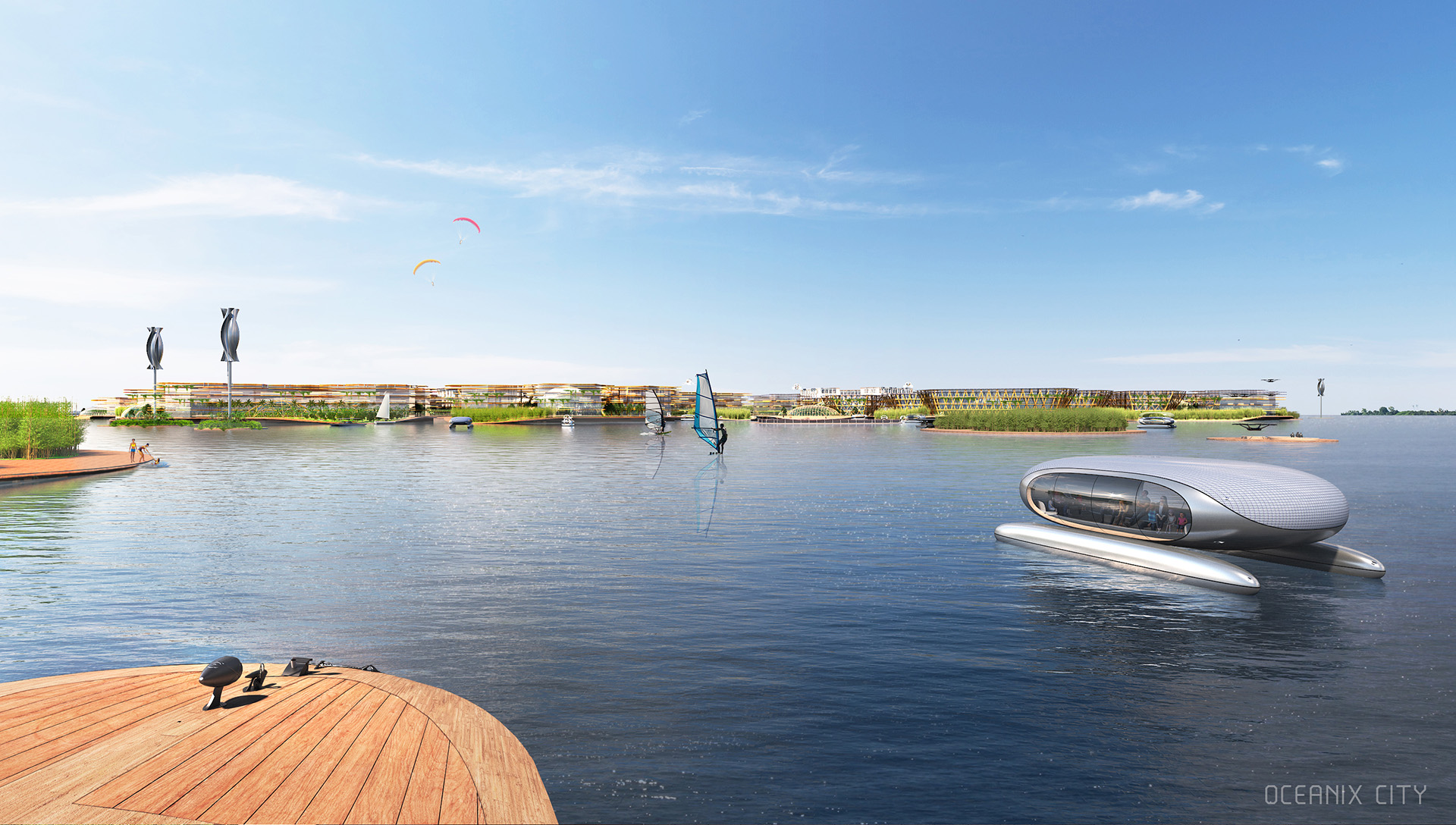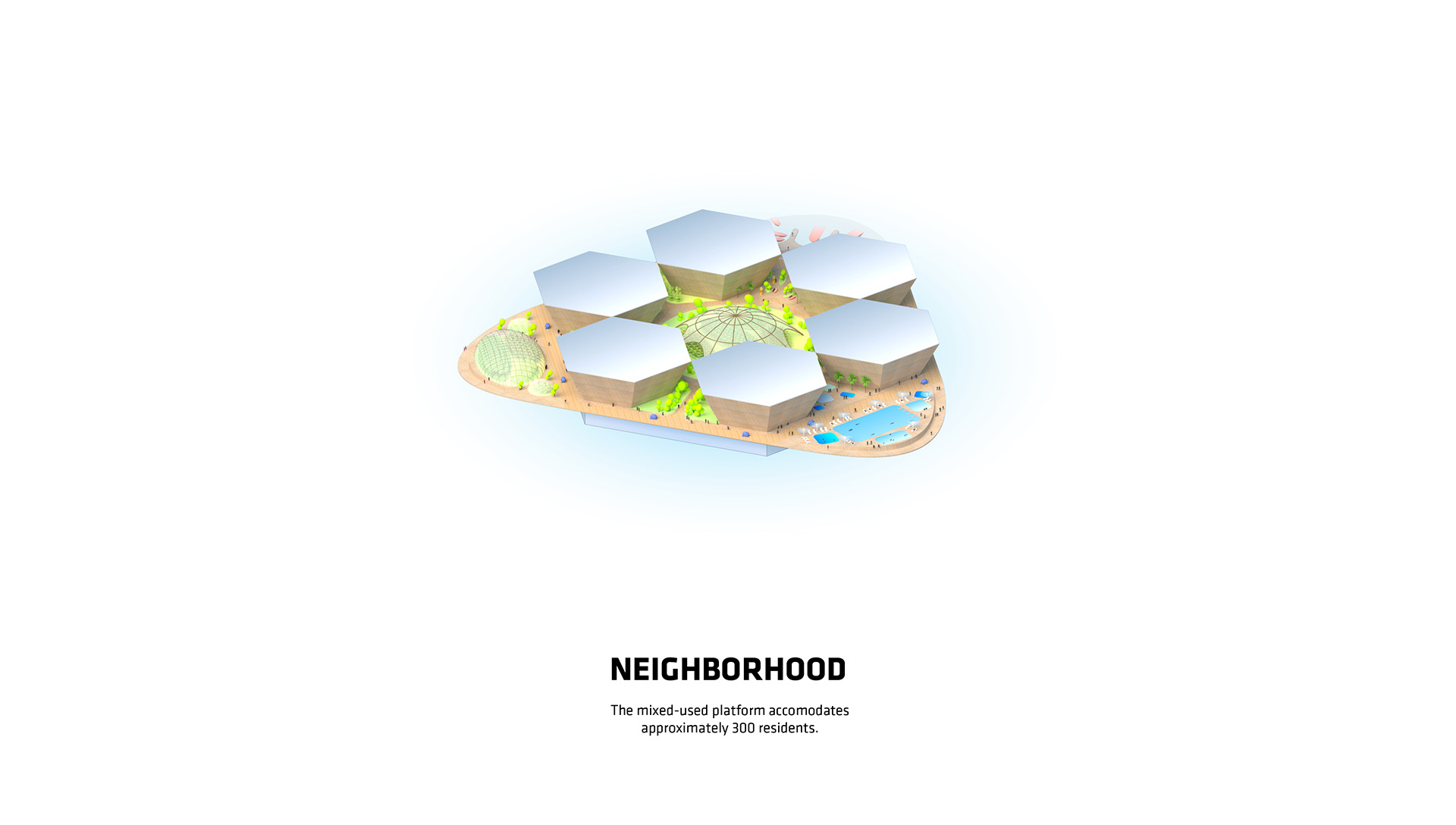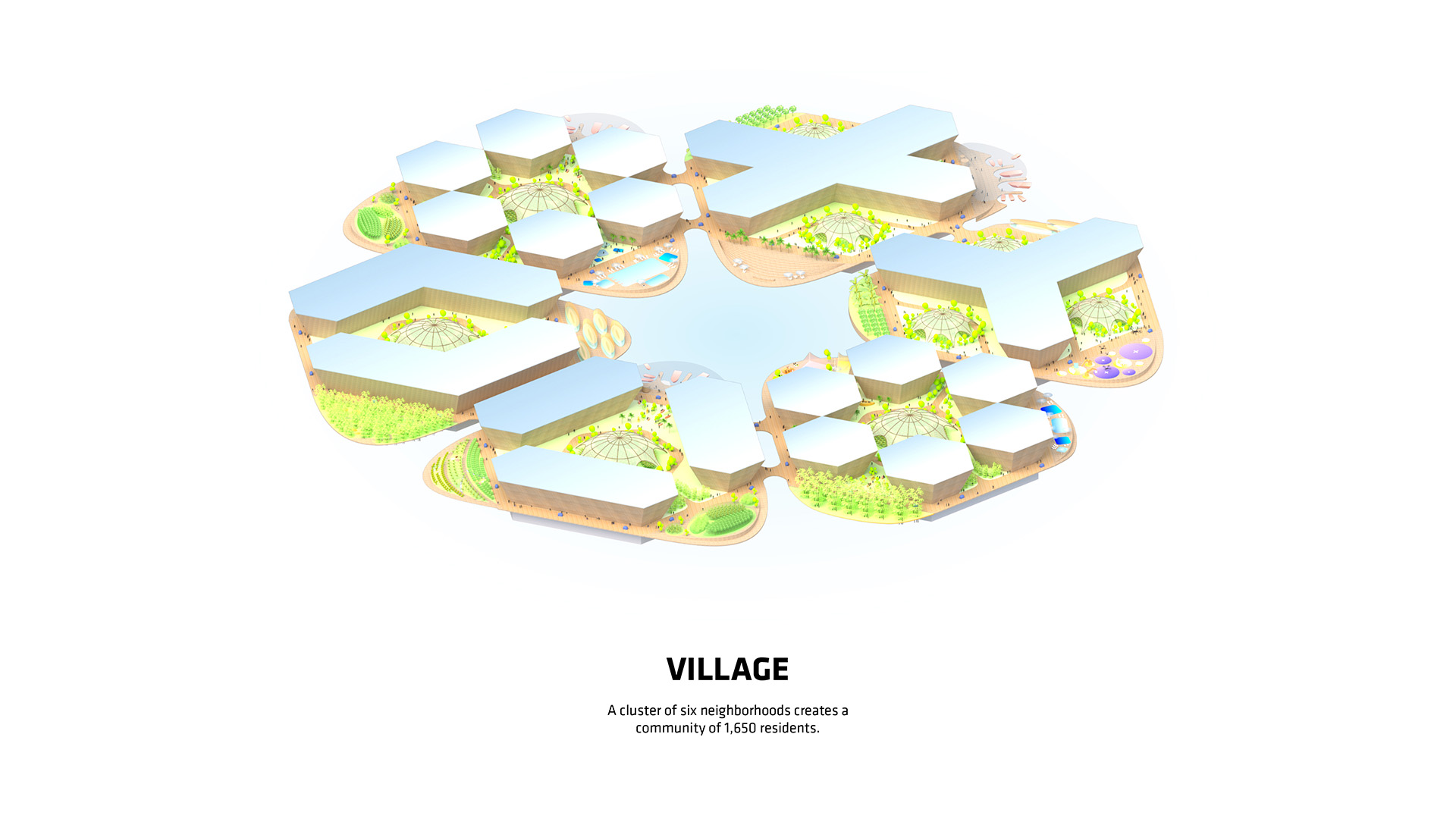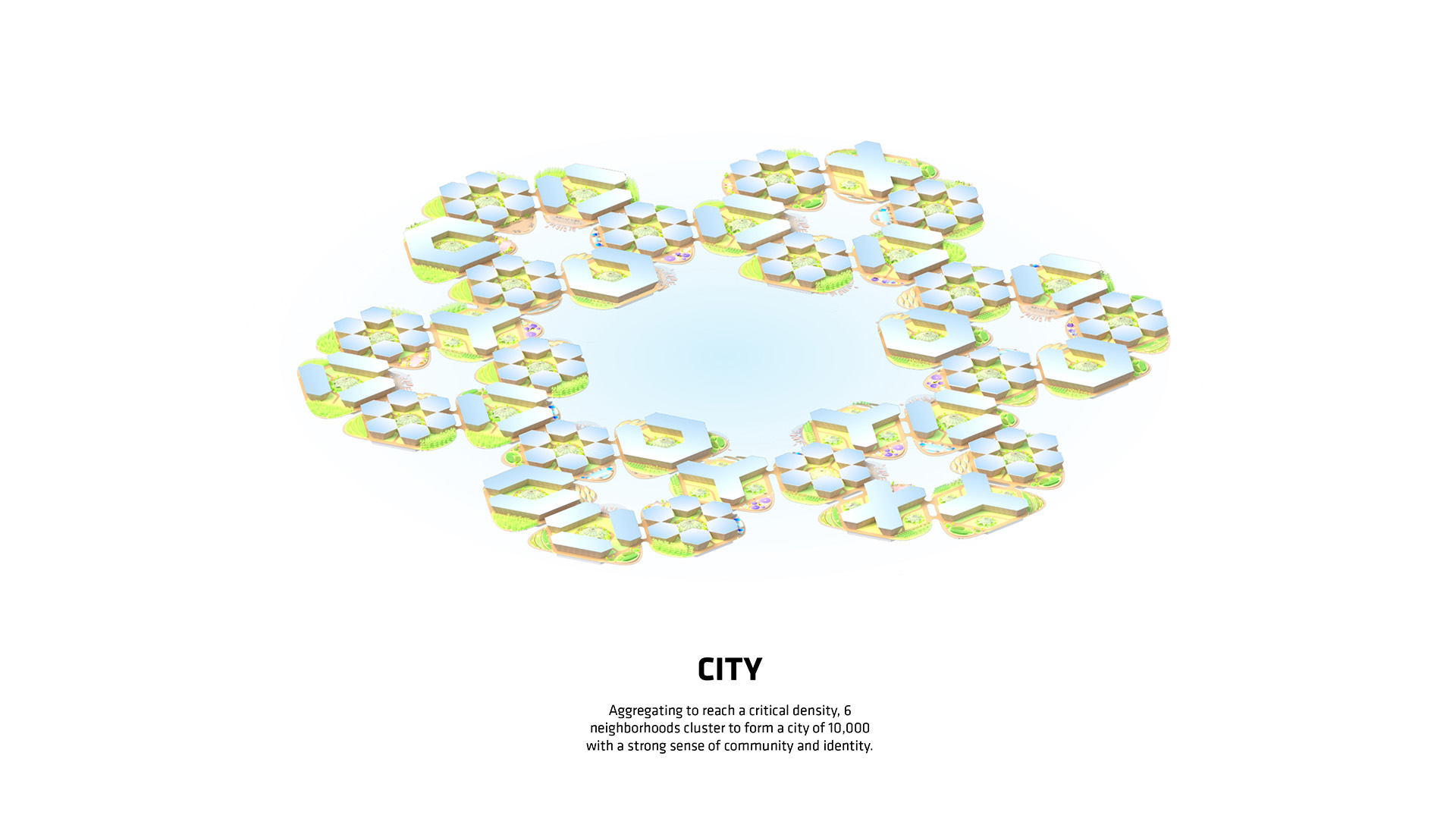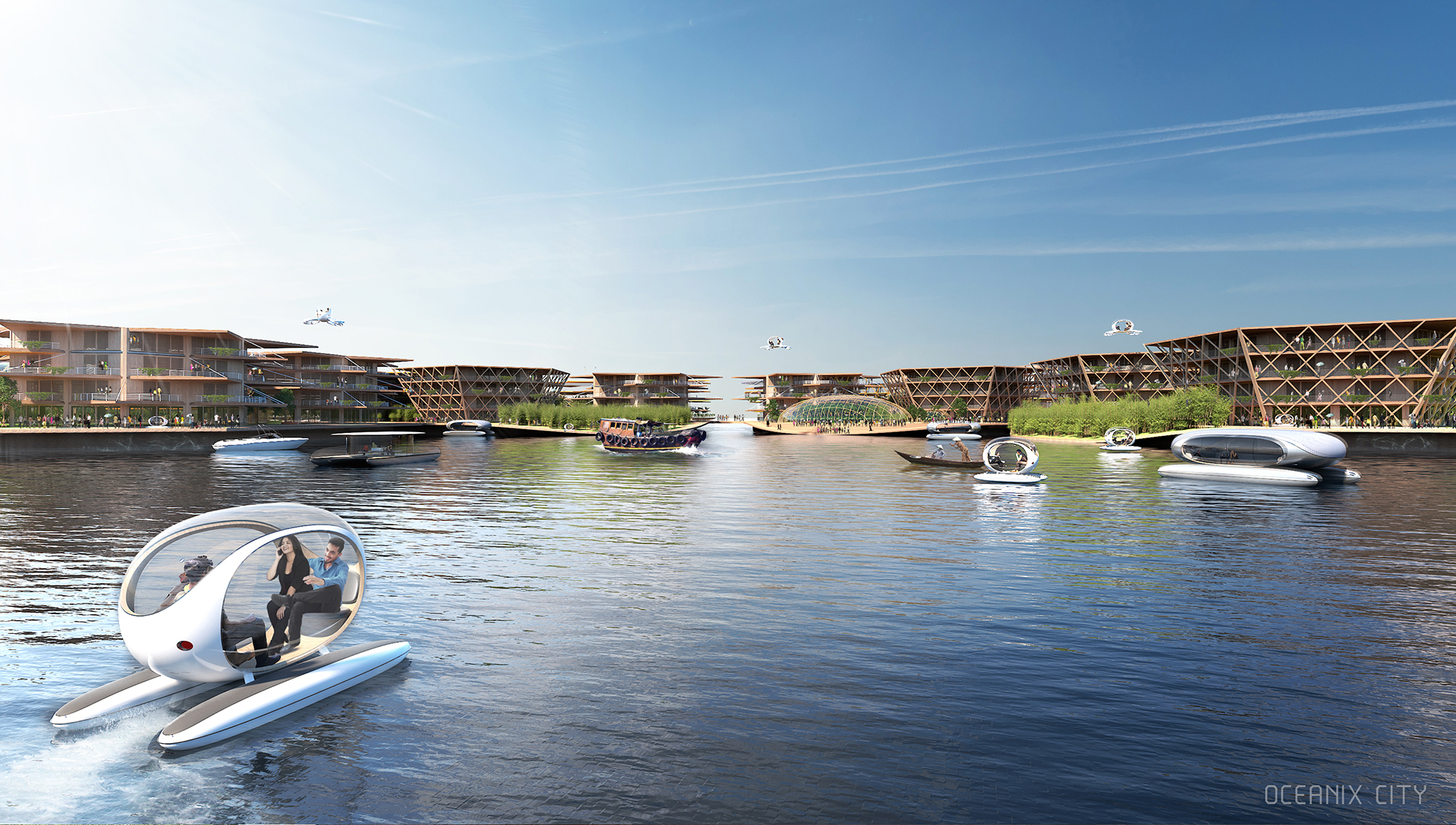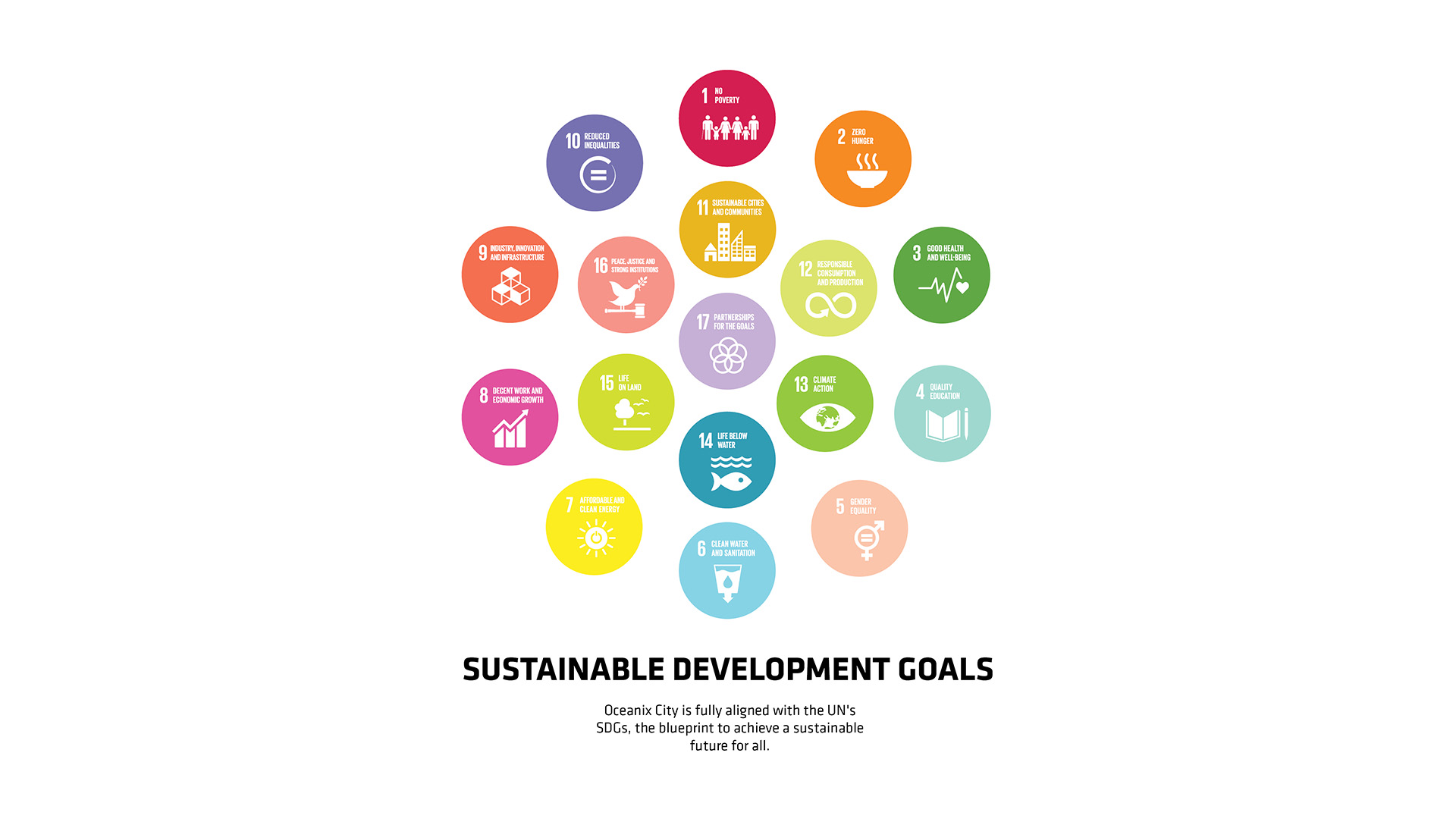Oceanix Floating City
Busan
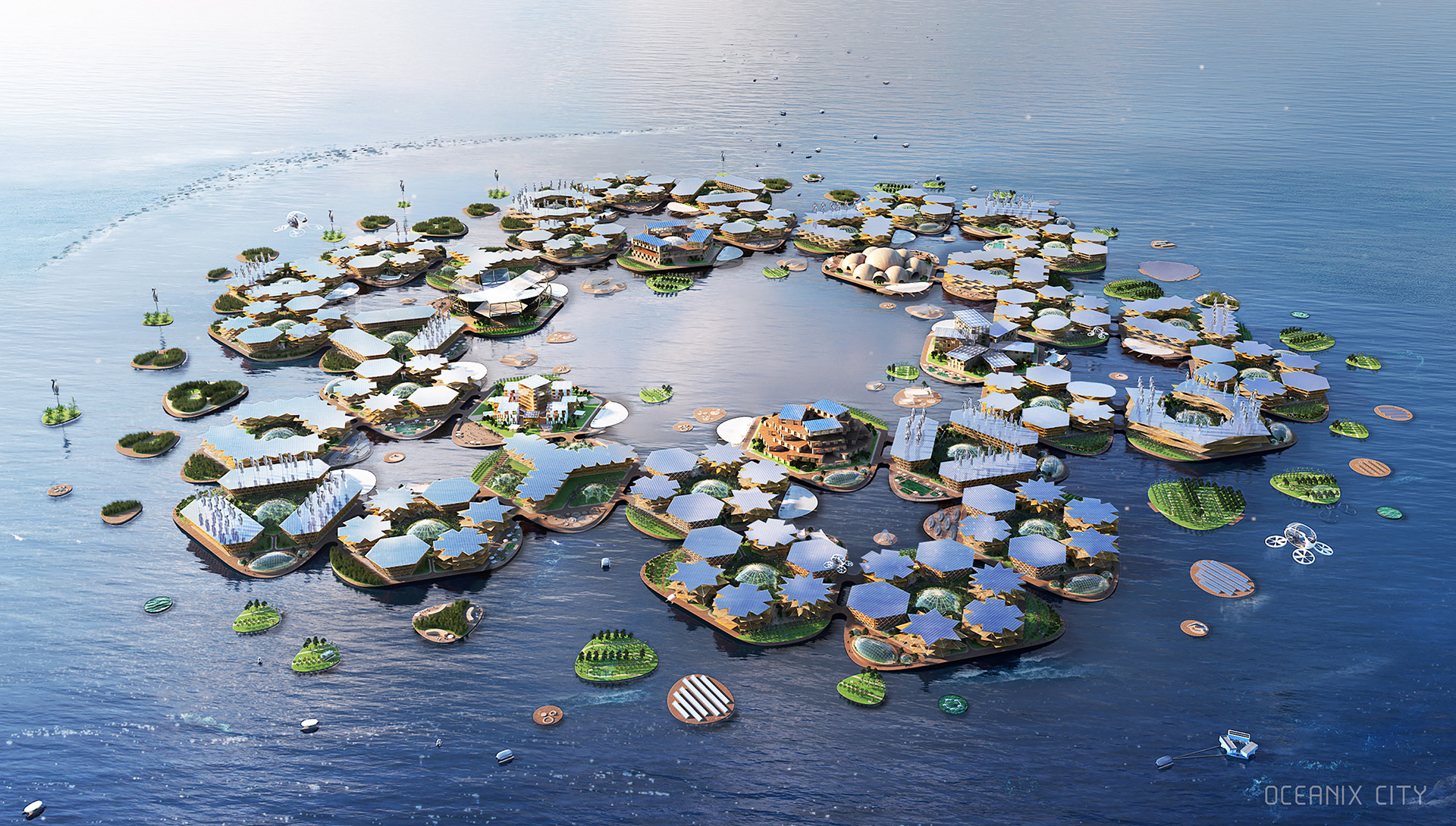
Oceanix Floating City will be the world’s first sustainable floating city, a breakthrough solution for coastal cities threatened by sea level rise.
As part of UN-Habitat’s New Urban Agenda, OCEANIX CITY is a vision for the world’s first resilient and sustainable floating community for 10,000 residents on 75 hectares.
Designed by BIG alongside local architects SAMOO, Oceanix City is a man-made ecosystem, it is anchored in the Sustainable Development Goals of the United Nations, channeling flows of energy, water, food and waste to create a blueprint for a modular maritime metropolis.
OCEANIX Busan, the first prototype, is designed to grow, transform and adapt organically over time, evolving from neighborhoods to cities with the possibility of scaling indefinitely.
OCEANIX Busan is the new land for coastal cities looking for sustainable ways to expand onto the ocean. South Korea's southern coastline, where Busan is located, is considered especially vulnerable to the impact of rising sea levels.
Location
Busan
Client
Oceanix
Main expertise
Innovative Mobility
PROJECT HIGHLIGHTS
- Adaptable, scalable, and inclusive solution for living on the ocean
- The neighbourhood is embedded with six integrated systems that generate energy needed on-site
- Pedestrian-friendly paths accommodate autonomous vehicles
Project gallery
Our contribution
OCEANIX Busan is the world’s first prototype of a resilient and sustainable floating community, helping pave the way for future innovations to help coastal cities threatened by sea level rise.
MIC-HUB is working with Oceanix Team and BIG to develop an inclusive shared, and sustainable mobility project for the Busan Prototype.
This is an opportunity to challenge the typical mobility vision of the future and imagine a new scenario city where people will move and transport goods in more unconventional ways.
The strategy centers on the use of sustainable shared and connected mobilities as well as the integration of water-borne transport technologies.
Pedestrian-friendly paths accommodate autonomous vehicles, replacing all fuel-based cars with electric and shared mobility, reducing carbon emissions, and promoting a healthy lifestyle.
Starting from a community of 3 platforms with 12,000 residents and visitors, it has the potential to expand to more than 100 000 residents. The floating platforms are accompanied by dozens of productive outposts with photovoltaic panels and greenhouses that can expand and contract over time based on the needs of Busan.
